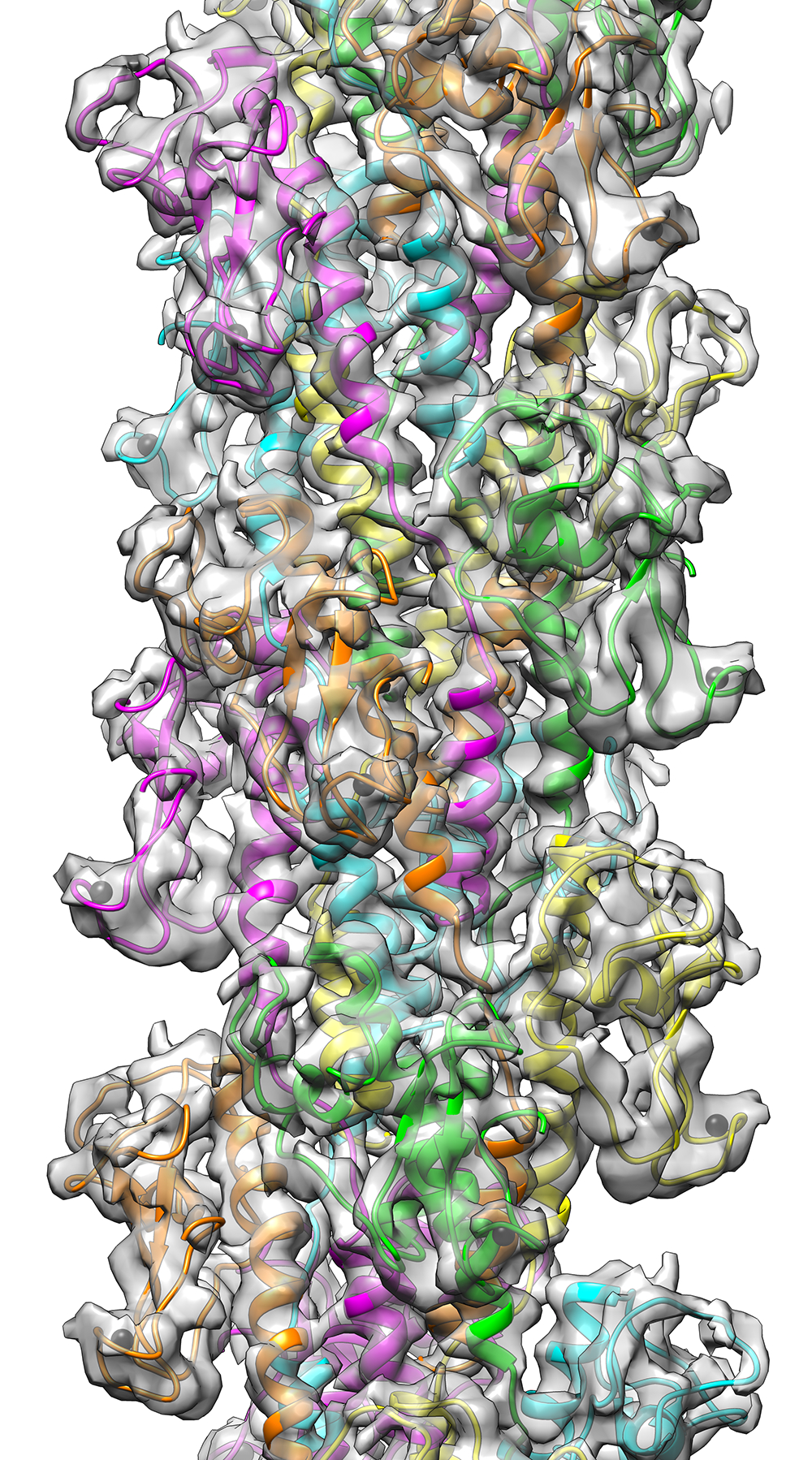We will perform structural characterization of adhesin-host receptor interactions at an atomic scale, and use this information to understand differences between high-virulent and low-virulent bacteria. This will also allow for identification of potential drug targets.
Development of new diagnostic, anti-adhesion and antimicrobial strategies requires a comprehensive understanding of adhesin-host receptor binding and associated signalling events. To achieve this, we focus on the interaction networks of key bacteria-host protein complexes, and on the effect of small variations in virulence factor sequence on structure and function. We will study the dependence of adhesin sequence length and repeat number on the conformational dynamics (bending, twisting) of the molecule. This will be achieved by combining high-resolution structural biology methods such as cryo-EM and structural EPR with different modelling approaches. Similarly, we will study the interactions and interaction networks of key adhesins from ESKAPE pathogens using a combination of NMR, cryoEM and integrative modelling. CyroET of adhesins in different conditions and with different host cell models will be used to test adhesion capacity of pili and develop anti-adhesion strategies.


We are recruiting 15 fully-funded doctoral candidates for 36-month positions across our European network, with guaranteed secondments in both academic and industrial partner institutions.
We are recruiting 15 fully-funded doctoral candidates for 36-month positions across our European network, with guaranteed secondments in both academic and industrial partner institutions.